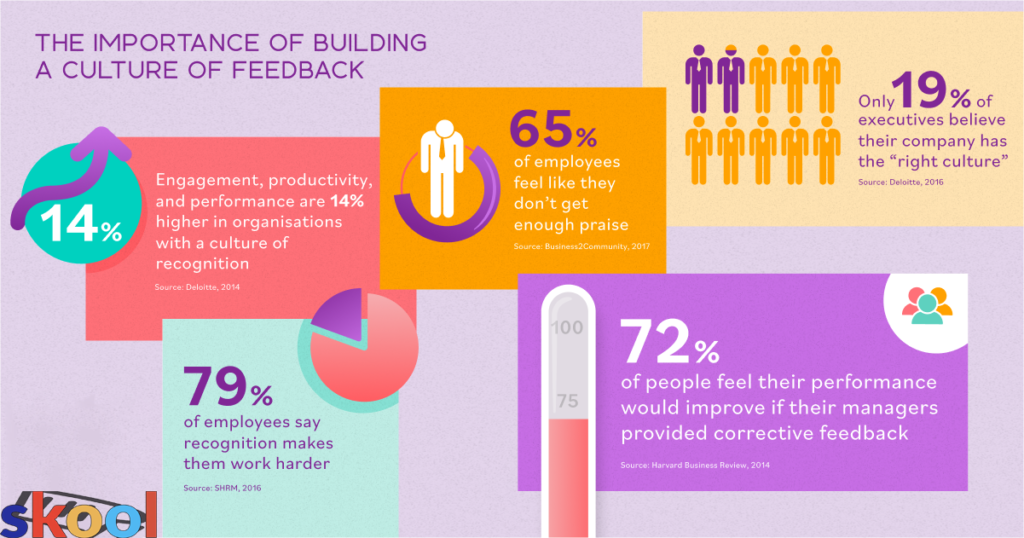Feedback isn’t just about pointing out flaws; it’s a powerful tool for growth and development. In a thriving online learning community like your Skool, fostering a culture of constructive criticism is crucial.
When members feel comfortable giving and receiving honest feedback, it creates a dynamic learning environment where everyone benefits.

This article explores strategies to cultivate a feedback-rich environment within your Skool community, enabling continuous improvement and member growth. Here’s what we’ll delve into:
- The Power of Feedback in Your Skool: We’ll discuss why fostering a culture of feedback is essential for your Skool community.
- Creating a Safe Space for Feedback: We’ll explore strategies to establish a trusting environment where members feel comfortable expressing their opinions.
- Promoting Effective Feedback Techniques: We’ll provide tips on guiding members towards providing constructive and actionable feedback within your Skool.
- Utilizing Skool Features to Facilitate Feedback: We’ll delve into how Skool’s functionalities can support a robust feedback loop within your community.
By implementing these strategies, you can transform your Skool community into a hub of continuous learning and collaborative growth, empowering members to reach their full potential.
The Power of Feedback in Your Skool: Fueling Individual and Community Growth
Feedback is the fuel that propels learning forward. In your Skool community, it plays a vital role in:
- Enhancing Learning Outcomes: Imagine a Skool member struggling with a complex concept in a course. Constructive feedback from a peer or instructor highlighting their strengths and areas for improvement can be a game-changer. This self-awareness empowers them to identify knowledge gaps, adjust their learning strategies (like focusing on additional practice problems or seeking clarification), and ultimately achieve a deeper understanding of the material.
- Promoting Skill Development: A vibrant Skool community often features discussions, project presentations, and collaborative activities. When members receive constructive feedback on their contributions, it goes beyond simply pointing out mistakes. Effective feedback delves into specific aspects of their communication, critical thinking, or problem-solving approach. This helps them refine these crucial skills and become more confident and articulate learners.
- Fostering a Culture of Excellence: A feedback loop encourages members to hold each other accountable for high-quality work. Imagine a Skool forum dedicated to design critiques. When members provide constructive feedback on each other’s design projects, it pushes everyone to strive for excellence. This collective effort elevates the overall standard of learning within your Skool community, benefiting all members by exposing them to diverse perspectives and best practices.
By creating a safe space for open and honest feedback, you’re nurturing a growth mindset within your Skool. This means members are constantly striving to learn, improve, and support one another’s journeys, ultimately fostering a dynamic and enriching learning environment.
